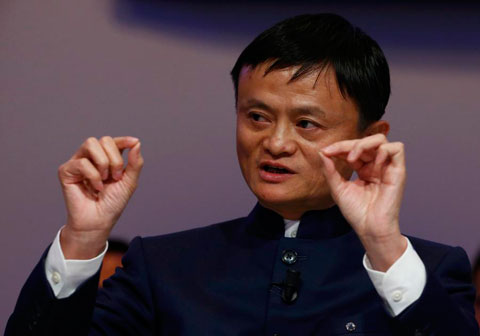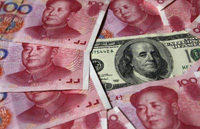Guangdong firms to apply for yuan loans in HK
By Qiu Quanlin in Guangzhou (China Daily) Updated: 2012-05-17 10:42A number of companies based in Guangdong province have been given approval by the People's Bank of China to apply for yuan-denominated loans in Hong Kong, Luo Bochuan, president of the central bank's Guangzhou branch, said on Wednesday.
"These companies, after being approved by the bank authorities, will be allowed to use yuan-denominated loans on the mainland for specific purposes," he said.
The approval involved 10 Guangdong-based companies such as Shaogang Iron and Steel Group and the home appliance manufacturer Midea Group, according to a report in the Hong Kong-based Apple Daily on Wednesday.
Shaogang Iron and Steel Group, for example, are reported to have applied for loans worth around 600 million yuan ($94.9 million) in Hong Kong.
The loans should be conducted through the companies' affiliated branches in Hong Kong, Luo said.
"The lending will last only for one year," Luo added.
The first group of 10 Guangdong-based companies will apply for loans worth around 30 billion yuan, the report said.
The move is part of the Guangdong provincial government's efforts to promote cross-border loans between Hong Kong and Guangdong, which aims to improve financial services for companies, especially small and medium-sized enterprises, as they strive to improve their business.
"The yuan loans will play a greater role in Chinese companies' investment and trade settlement in overseas markets," Luo said.
Luo made the remarks on Wednesday at a financial forum focusing on assisting Guangdong-based companies' overseas expansion in Guangzhou.
After the forum, the Guangdong provincial government signed an agreement with Bank of China Ltd to promote cross-border financial services for companies and other institutions in Hong Kong, Guangdong and Macao.
Bank of China also signed agreements with more than 20 Guangdong-based companies to assist them with diversified financial services in their overseas expansion.
"We will promote yuan-denominated loans in overseas markets and help improve mainland companies' performance in equity-trading in Hong Kong and Macao," said Xiao Gang, chairman of Bank of China.
The authorities have taken a series of measures over the past two years to invigorate the offshore yuan market in Hong Kong as part of a long-term plan to promote overseas use of the yuan.
Before the approval of yuan-denominated loans in Hong Kong, mainland companies were only allowed to issue bonds in Hong Kong.
In January, the National Development and Reform Commission, the country's top economic planning agency, approved 10 domestic banks to issue bonds in Hong Kong worth a combined 25 billion yuan, according to the Xinhua News Agency.
qiuquanlin@chinadaily.com.cn
- Prices of new homes hit an upward track in China
- Chinese rating agency gives Gazprom AAA
- Sino-Africa cooperation grows with mutual benefits
- Air China to launch direct flight from Beijing to Melbourne
- The dark side of China's offshore investment
- Fosun's Club Med deal, a success over isolation and ignorance
- China's younger generation losing interest in bargaining
- Foreign banks still find China market 'challenging, complicated'

















